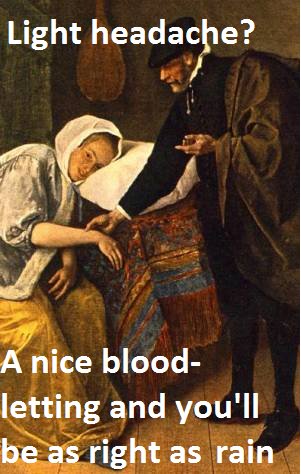I am a skeptic. The works of Nassim Taleb and Karl Popper has been tattooed in my worldview. Yes Nassim, finding a black swan will invalidate the theory that all swans are white. Karl, I understand that science should attempt to disprove a theory rather than finding ways to continually prove it.
Countless times in human history, theories that people believed to be true for many years have been proven false centuries later. The one example I can’t stop thinking of is Ignaz Semmelweis. Semmelweis introduced hand-washing in the 19th century to prevent patient deaths. For years, surgeons shunned Semmelweis because they don’t believe that their own germs were killing their patients. Crazy.
And then we have the one of medicine’s oldest practice of bloodletting which has thought to have originated in ancient Egypt thousands of years ago. Those doctors be like, “I heard you have a migraine. No worries. Let’s drain 40% of your blood and you’ll be migraine-free in no time.” A famous casualty in bloodletting was America’s first president, George Washington. In 1799, Washington had a sore throat and asked to be bled the next day. He did not make it. Doctors drained too much blood. Well, no shit doc.

These examples illustrate that being married to ideas is dangerous. What would happen if these medical professionals would say, “I don’t know”? Perhaps a healthy conversation between Semmelweis and the surgeons would transpire which would not have delayed the practice of hand-washing in hospitals. Bloodletting has been practiced for thousands of years but what if they asked themselves, “Jeez, I don’t know if this is the best treatment for a sore throat”?
There is power in saying “I don’t know” because it opens our minds to all points of view. The education system has taught us to have all the right answers or we fail the test. But life is more nuanced than that. We don’t have all the answers to life and it is okay to admit that we simply don’t know. “I don’t know” means you have intellectual humility, which benefits learning and bridges ideological gaps.
Saying “I don’t know” gives you freedom to explore the other side. It gives you the power to explore your thought process and not be stuck in rigid thinking. There is always room for growth when you say “I don’t know.” Mic drop.
